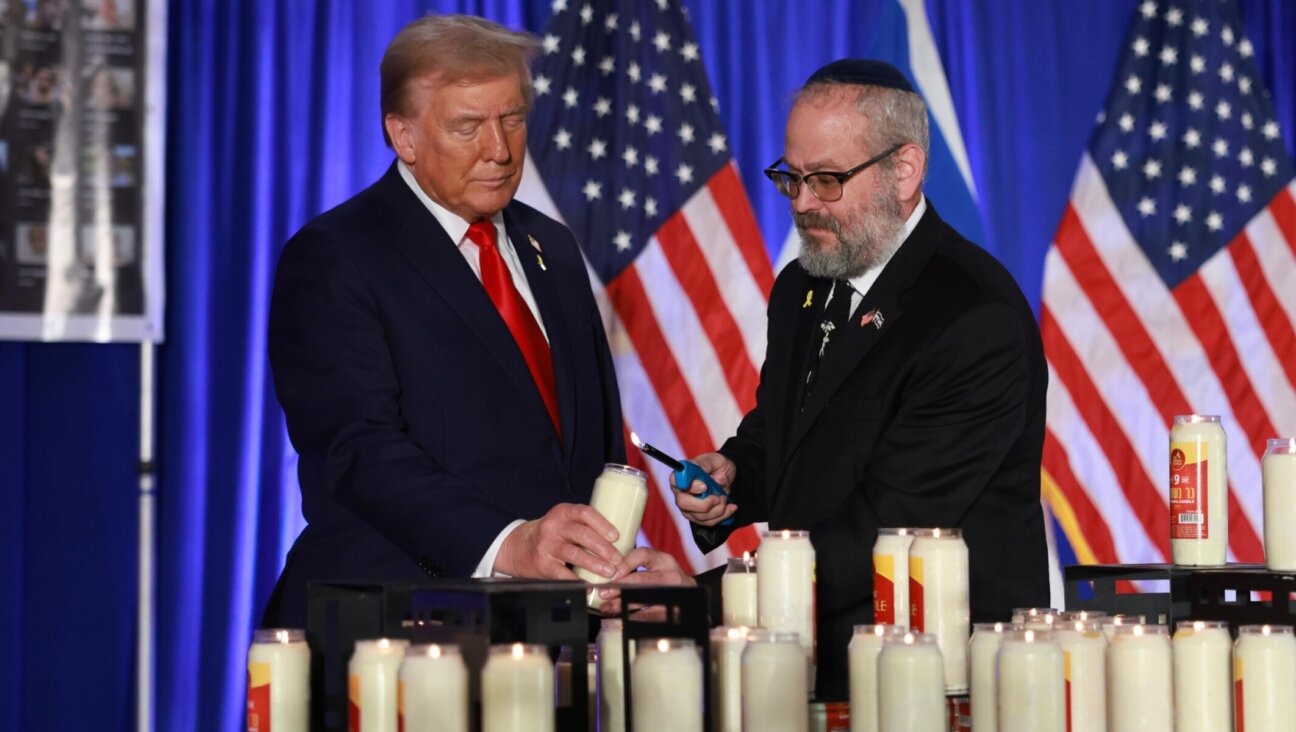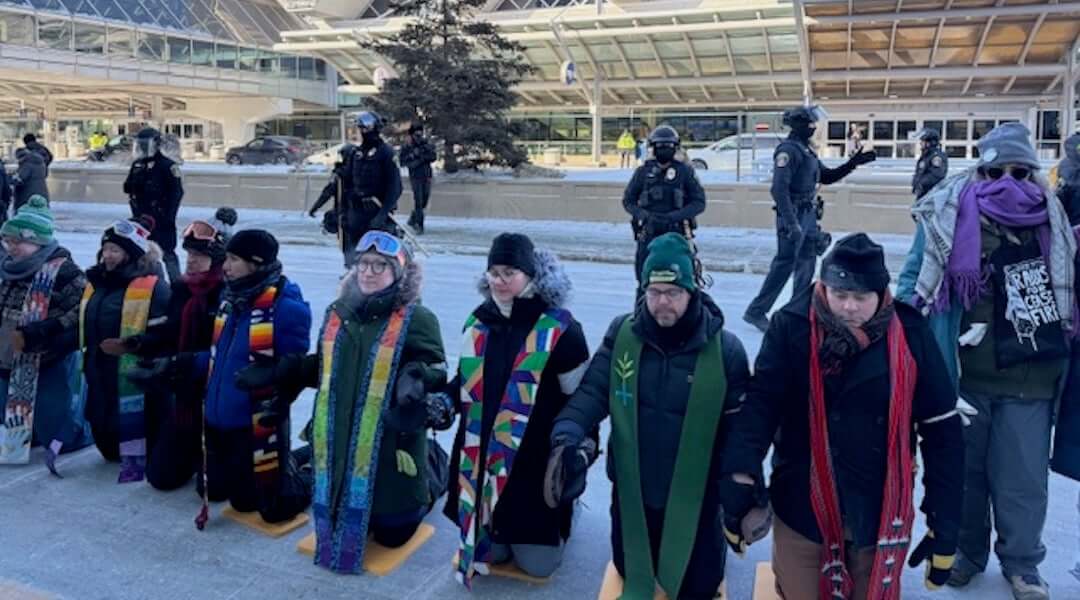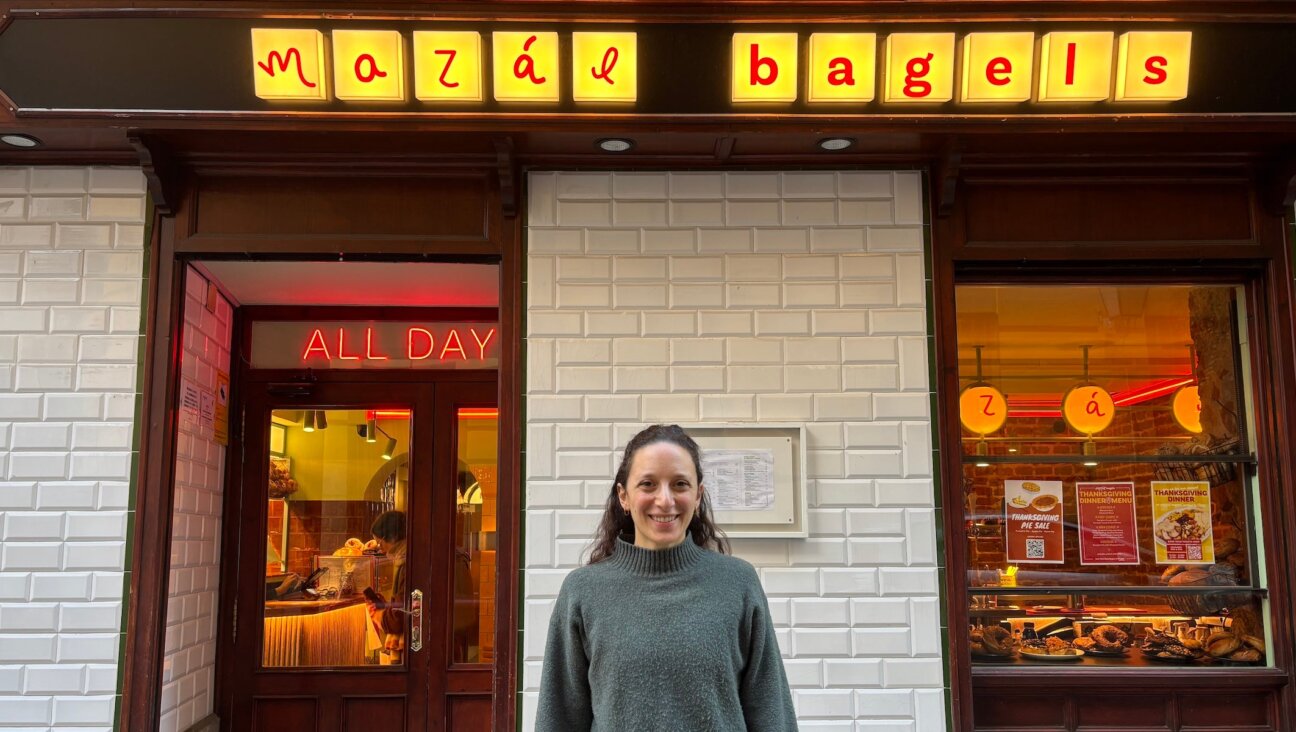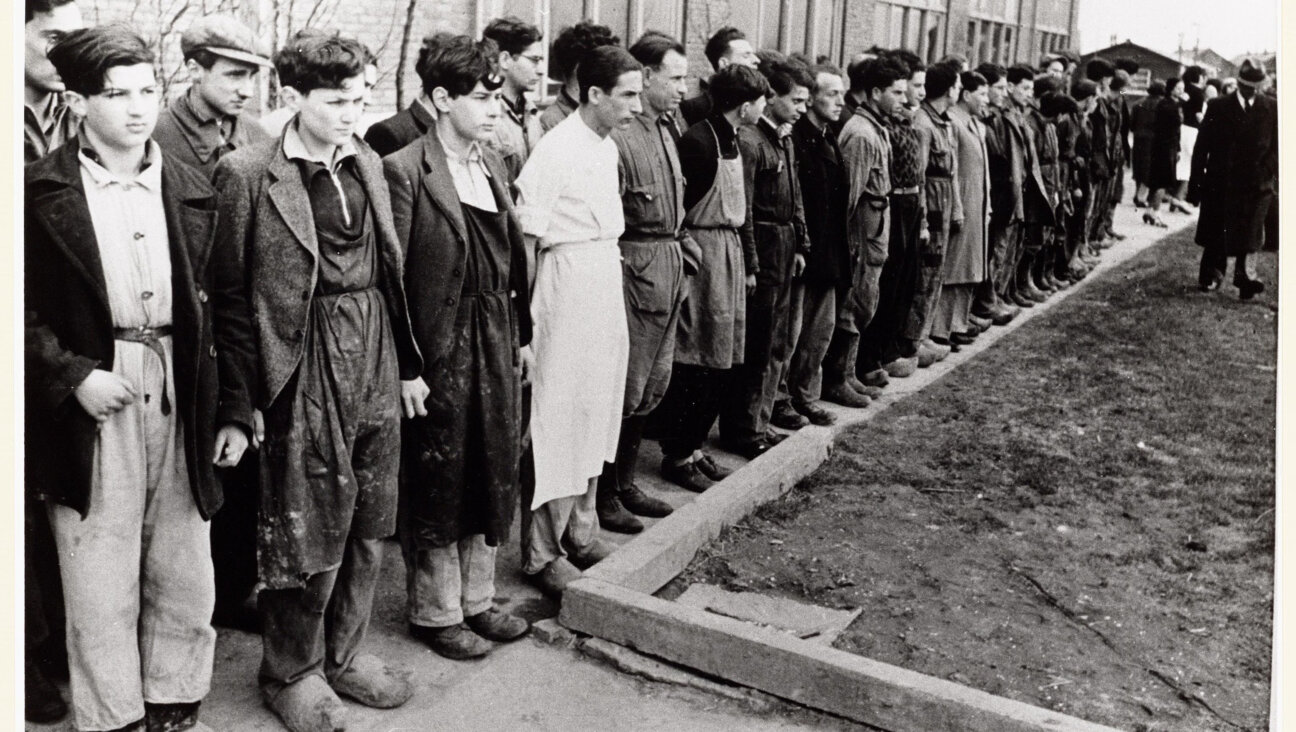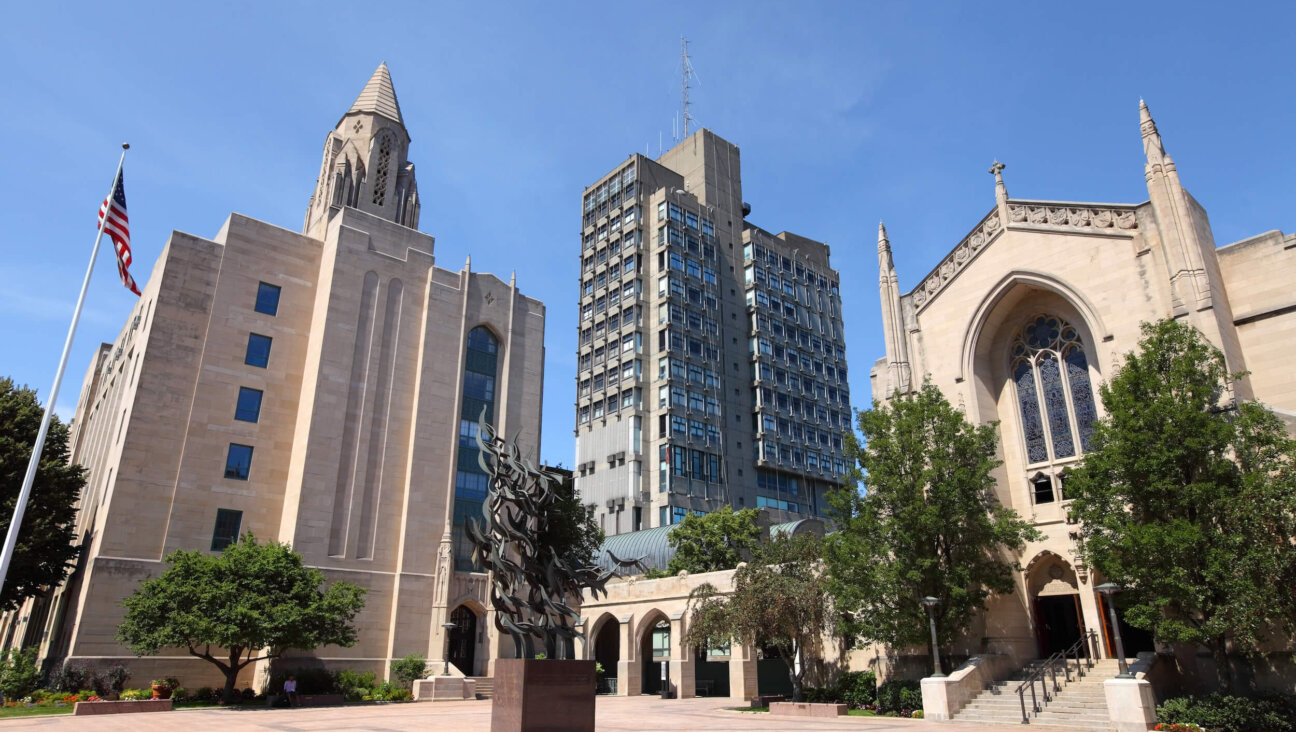11 pro-Palestinian protesters arrested at U of Minnesota for occupying and damaging administration building
UMN had announced a new policy of ‘neutrality’ in August, rejecting calls to divest from Israel
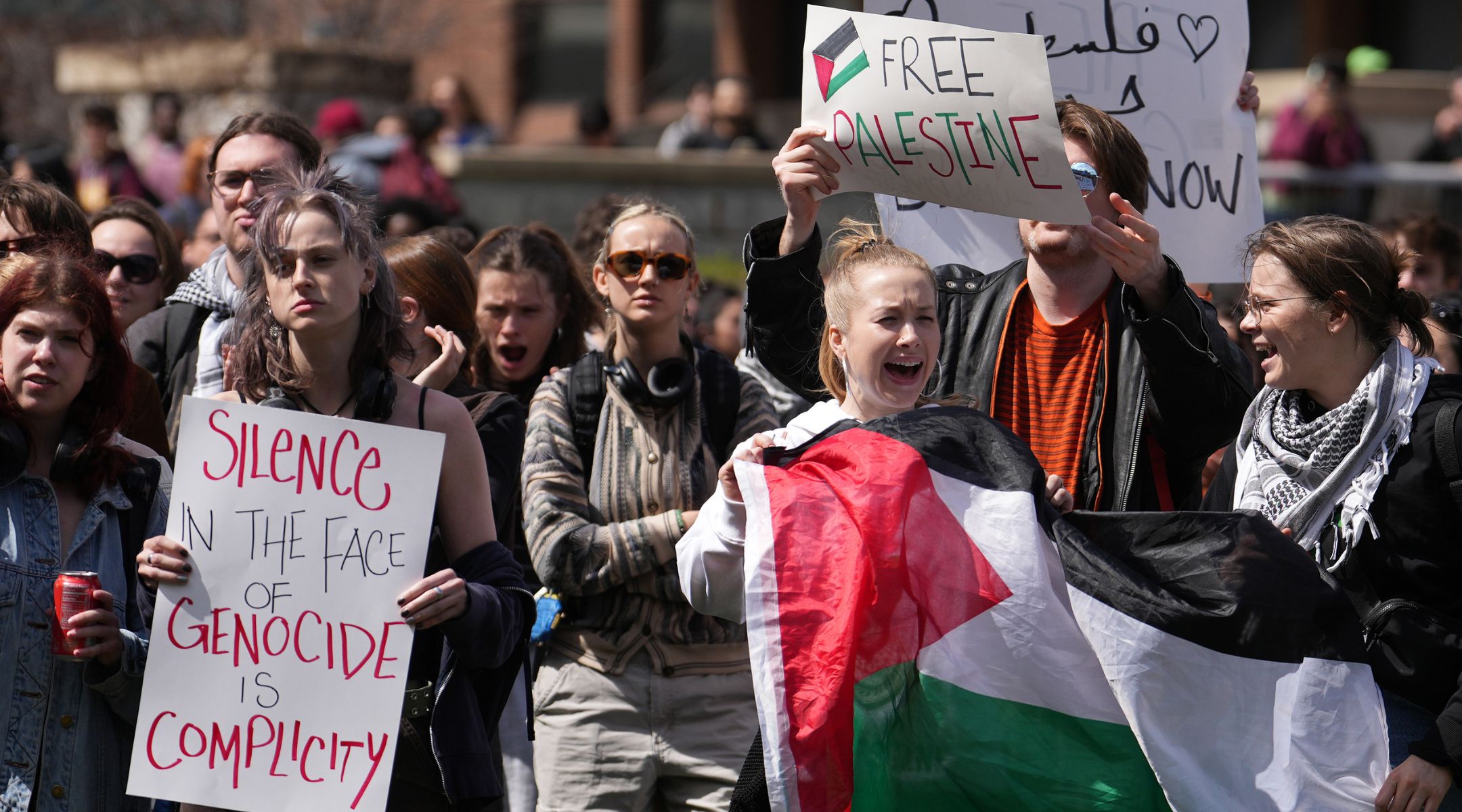
Pro-Palestinian supporters during a rally at the University of Minnesota, April 23, 2024, in Minneapolis. (Anthony Souffle/Star Tribune via Getty Images)
(JTA) — Eleven protesters were arrested Monday afternoon at the University of Minnesota after storming an administrative building and vandalizing it as part of an effort to push the university to divest from Israel.
The administration said they caused property damage and restricted access to the building.
The protest is the latest bout of campus activism to result in arrests during a new wave of anti-Israel activity this fall. It echoed a similar demonstration at Columbia University last spring, during the nationwide pro-Palestinian encampment movement, when activists occupied a campus building, leading to a police raid and dozens of arrests.
The Minnesota protest was organized by the campus’ chapter of Students for a Democratic Society, a left-wing activist group that first rose to prominence in the 1960s. The chapter has called on the university to end its policy of “neutrality” in its investing strategy, to divest from the country and to boycott its academic institutions, including by ending study abroad programs there.
In a post on X calling for students, faculty and alumni to “occupy” Morrill Hall, the university’s administrative headquarters, the protest organizers accused the school of “complicity” in “a year of the genocide in Palestine.” It also demanded that the university grant “full amnesty for students, staff, faculty, and community members disciplined or fired for pro-Palestinian actions, including renowned genocide scholar Raz Segal.”
In June, the university rescinded an offer to Segal to serve as the faculty director of its Center for Holocaust and Genocide Studies, after he said Israel’s military campaign in Gaza was “a textbook case of genocide unfolding in front of our eyes.”
Last spring, activists at the school also set up a pro-Palestinian encampment, leading to protests, arrests and building closures. The encampment was ultimately dismantled after organizers reached an agreement with the university, which led to a meeting with UMN regents to discuss their demand that the school divest from Israel.
The May meeting likely made UMN the first U.S. school with a major Jewish population to conduct a debate on the topic. The university then announced in late August that it would “adopt a position of neutrality related to investing its Consolidated Endowment Fund,” adding that the decision “formally declines the request to divest from Israel-related investments.”
With the fall semester in full swing, and the Israel-Hamas war ongoing, some activists have renewed their efforts to push the university to divest.
The university said in a statement that protesters assembled around 3 p.m. on Monday and began entering Morrill Hall shortly before 4 p.m.
“Once inside the building, protesters began spray painting, including covering lenses of all internal security cameras, breaking interior windows, and barricading the building’s entrance and exit points,” read the statement. “The full extent of the damage is unknown. A number of staff were working in the building at the time, and several people were not able to exit, with some being unable to exit the building for an extended period of time.”
At 4:39 p.m., the university sent an emergency alert urging those in the building to exit and others to avoid the area. Campus police entered the building about an hour later, according to the statement, and arrested 11 people.
A spokesperson for the Hennepin County Sheriff’s Office told the Jewish Telegraphic Agency that the 11 protesters were still in custody as of Tuesday afternoon. The protesters, who range in age from 18 to 26, were all arrested on probable cause charges of damage to property, trespassing and rioting. One was given an additional charge of fourth-degree assault.
The protesters had arrived with tents, saying they would remain in the building until their demands were met.
“We plan to stay until they forcibly remove us,” Merlin Van Alstein, an organizer with the group, said before the arrests, according to CBS. “The people inside aren’t going to leave until they meet our demands or they are forced to leave.”
As part of the protest, the organizers referred to the building as “Halimy Hall,” named for 19-year-old Palestinian influencer Medo Halimy who, according to the Associated Press, was killed in an Israeli airstrike in August. (Israel’s military says it is not aware of the strike that killed him.)
Emily Boskof, the executive director of Minnesota Hillel, commended the university for its response.
“At Minnesota Hillel, our most important priority is keeping Jewish students safe — first, foremost, and always,” Boskof said in a statement, according to CBS. “We appreciate the administration and law enforcement holding students accountable for any violations of the code of conduct. We are in close communication with university administrators to ensure that they’re doing everything possible to provide support and keep Jewish students safe.”
Boskof continued: “While these incidents grab attention online and in the media, most of the time, we are focused on the pride and joy of being Jewish.”
Early on Tuesday, the pro-Palestinian protest organizers called for two rallies, one at the county jail and one on campus, the latter of which was affiliated with Students for Justice in Palestine. The group also told followers to “call in to demand the occupiers are released” and provided a script.
The script was headlined, “Let our people go!”

